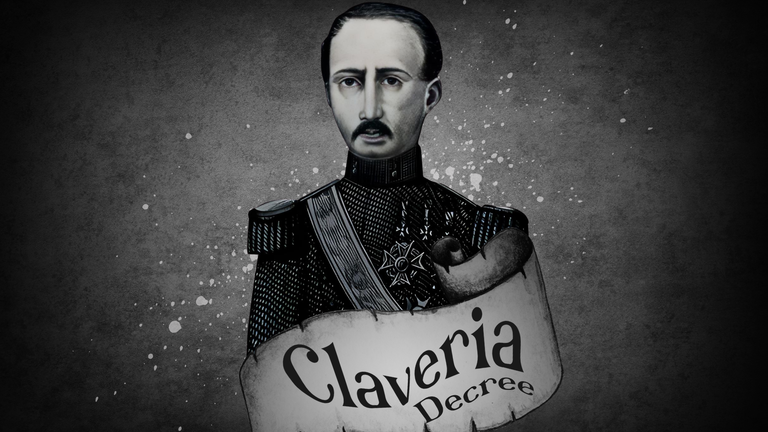"Do you have any idea where your surnames came from?"
This was the question my classmate threw at us during their assigned group report in our Readings in Philippine History class earlier today. It was such a simple question, an opening remark that made me pause and wonder.
When I came to think about it, I realized that my surname sounded a little bit Spanish. My mom often told us stories about how her grandparents had Spanish blood flowing within them. I carried this idea growing up, strongly believing that there is a little bit of a percentage of foreign blood flowing within my veins. It is like a badge that I wear with pride – proud of the information bestowed upon me, like a secret that made me feel entirely connected with my distant and intriguing cultural heritage.

Another belief that has always been imprinted on me is that the reason why most Filipinos have Spanish-like surnames is because of the long period of Spanish colonization, which began in the year 1565 and lasted in 1898. If we are going to calculate it, we have been under the Spanish rule for over 300 years.
I thought this was the most logical and simplest explanation for that question. I mean, within those years, it was kind of impossible for the two races — Filipinos and Spaniards — to just coexist without leaving some kind of mark, or genetics within them.
Don’t you agree?
I believe that our surnames are one of the remaining and obvious traces they left behind, they had imprinted on our lineage. It seemed like the most straightforward connection: their colonization means influence, and their influence means their surnames.
Is there any other possible reason behind it? I don’t think so or that is just what I thought.
As the class went on and as we delved deep into the topic, my beliefs suddenly changed, and the questions lingering in my mind became clearer. There is a more concrete, intentional, and strategic explanation behind the widespread adoption of Spanish-like surnames.
It is because of the Claveria Decree.
Have you ever heard about this?
I know the name itself doesn’t seem to carry much weight at first glance, it lacks substance. It is unfamiliar. Something new even that makes you think deeply.
That was also my initial reaction when I first encountered this terminology.
So, what is Claveria Decree?
According to the information I gathered from the reporters, the Claveria Decree was enacted by Governor-General Narciso Clavería y Zaldúa in the year 1849. It was a decree requiring all Filipinos to take on standardized Spanish and indigenous surnames from a government-provided list known as the Catalogo Alfabético de Apellidos.
This catalog wasn’t just a random collection of surnames it was a carefully curated list designed to primarily impose the structure on the naming conventions of the Filipinos. This catalog consists of over 60,000 wide variety surnames, categorized alphabetically for ease of assignment. The surnames listed in the catalog are a combination of Spanish, religious saints, and even Filipino word surnames.
Spanish names such as Castillo, Santiago, and Fernandez were common, reflecting the direct influence of Spain. Religious saint names like Santos, Cruz, and Rosario showed the role of Christianism, the church, and religion during that period. There are also Filipino surnames that are derived from nature such as Tagumpay, Alon, and Liwayway.
Why this is necessary? Why did the colonial government at that time impose that massive change?
The primary objective is to establish:
- social order
- simplify taxation
- streamline population records
Before the Claveria Decree, many Filipinos did not have surnames, or they used generic identifiers based on personal characteristics, occupations, or geographical locations. Let’s have an example, a person might be known as Juan, the son of Pedro, or Maria from the rice fields. This informal system made it difficult for the Spanish colonial government to manage records and maintain social order.
The decree aimed to establish a social structure and streamline the administration of the Filipino population. By requiring Filipinos to adopt standardized surnames, the Spanish colonial government could more effectively impose taxes, enforce military conscription, and keep accurate records of marriages, baptisms, and other civil registrations.
Hearing this explanation in class shifted my perspective completely. I now have a deep understanding of where my surname came from. It wasn’t just about heritage or bloodlines as I initially thought. It was about governance and efficiency during that period.
This realization hit me hard. I had always worn my surname as a badge of pride, but now I see it as more than that. It is a piece of history.
So the next time someone asks me where my surname comes from, I’ll have a more concrete and meaningful answer. It’s not just about Spanish blood or heritage, it’s a symbol of a history, one of survival, adaptation, and the colonial system that shaped us.
And maybe, just maybe, this awareness brings me a step closer to understanding who I am and where we, as Filipinos, come from.
This is our history, our surname's history where it came from.
Congratulations @khairro! You have completed the following achievement on the Hive blockchain And have been rewarded with New badge(s)
Your next target is to reach 7000 upvotes.
You can view your badges on your board and compare yourself to others in the Ranking
If you no longer want to receive notifications, reply to this comment with the word
STOP!discovery 15
This post was shared and voted inside the discord by the curators team of discovery-it
Join our Community and follow our Curation Trail
Discovery-it is also a Witness, vote for us here
Delegate to us for passive income. Check our 80% fee-back Program
What an interesting origin of Spanish surnames in the Philippines.
That was so interesting!